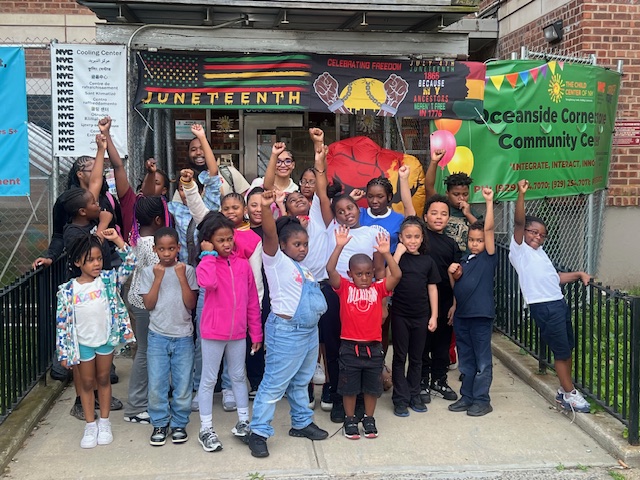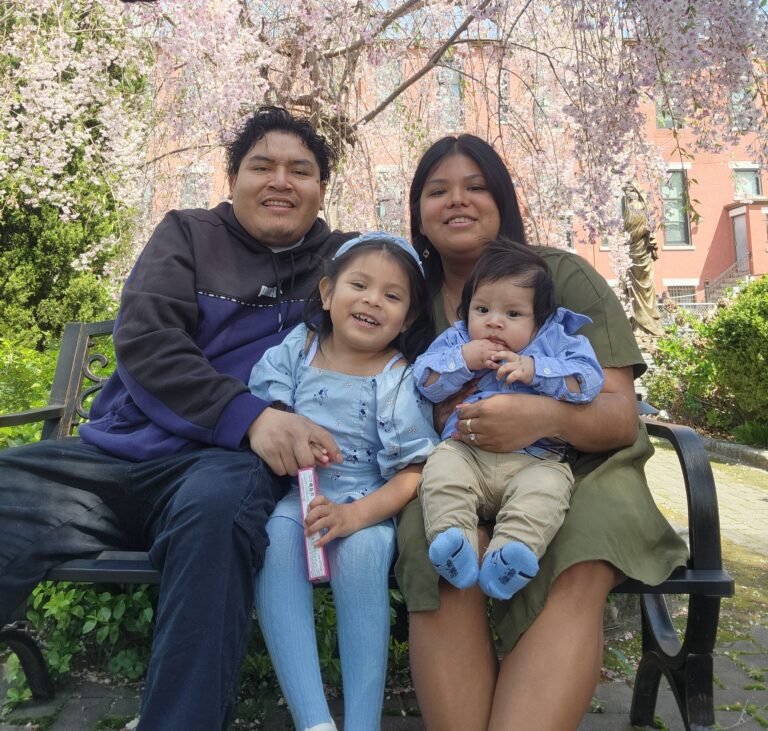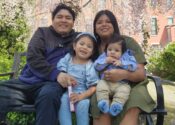 By Traci Donnelly
By Traci Donnelly
Chief Executive Officer
A famous quote, often attributed to Mahatma Gandhi, states that a nation’s greatness is measured by how it treats its most vulnerable members. Children depend entirely on others and are therefore the most vulnerable among us. Living up to our responsibility to our children is our most sacred obligation.
For 65 years, The Child Center of NY has been wholly dedicated to the well-being of children. The agency began as a children’s counseling center, and today, our behavioral health clinics serve children who have endured some of the worst kinds of trauma, such as child abuse and abandonment. We know the effects are long-lasting, pervasive, and heartbreaking and should be avoided at all costs. A healthy, intact family is always the goal because we know the importance of the parent-child relationship. When we must separate parents and children, due to safety and other such issues — even temporarily — it’s devastating, even with the best supports.
It is because of this experience that we feel compelled to speak out about the administration’s policy of forcibly separating migrant children from their parents at the U.S.-Mexico border, which to date has affected thousands of children. We condemn — in the strongest possible terms — a policy that does not prioritize the well-being of children and, in fact, causes them irreparable harm.
Children do not simply “get over” a trauma of this magnitude. The damage is not undone when (if) a family is reunited. I wish it were different, but as The Child Center’s Vice President of Early Childhood Education and Child Abuse Prevention, Linda Rodriguez, states, “The abrupt separation of families, leaving children without a nurturing environment or a familiar face, is deeply traumatic for a child. It is not just an issue of children’s immediate needs. No matter what basic necessities or services are provided, no service is going to replace the attention, love, care, and bond between parent and child. In addition, young children do not understand the relevance of time. Whether it’s five hours or five weeks — and we know these separations were not lasting five hours — the anxiety that results can have significant long-term effects.” These effects are described incredibly well by Harold Koplewicz, M.D., president of the Child Mind Institute. We see them, sadly, every day at The Child Center. According to The Child Center’s Vice President of Integrated and Value-Based Care, Dr. Anderson Sungmin Yoon, “Trauma can change children’s brain and deter normal child development. Sadly, the U.S. policy of separating children from their parents at borders could lead children to experience lifelong childhood trauma and insecure attachment problems.”
There are studies to back up Dr. Yoon’s assertions, but truly, no one should need them. We all understand at our core that a forced separation from loving, capable parents is one of the most traumatizing experiences a child can endure. That is why the outrage has been so widespread, transcending so many lines that normally divide us. That’s why American Academy of Pediatrics President Colleen Kraft called the practice government-sanctioned child abuse, and we agree. Not one of us would stand idly by if there were any sliver of a chance of this happening to our own children.
Knowing of the irreparable harm this practice causes children — who are in this position through no fault of their own, and only because of the accidental circumstances of their birth — to allow any version of this practice would be unconscionable.
As of the writing of this statement, President Trump has issued an executive order reversing his administration’s previous policy of separating families at the border. However, it is our understanding that there is significant uncertainty regarding the legality of the president’s executive order, how the administration will continue to enforce its “zero tolerance” policy without separating children from their parents, and how (and how quickly) currently separated families will be reunited.
Whatever policy decision-makers ultimately develop to deal with these serious issues, ensuring children’s well-being — physical, mental, and emotional — must be of primary concern. And indefinite imprisonment clearly is not the answer. We are confident that our government can keep our citizens safe without systematically traumatizing an entire swath of children.
We call upon all those in positions of power — in government or any other sector — to make their voices heard loudly, clearly, and often on this issue. And we call on the administration to ensure the swift reunification of families currently separated. A system must be put in place immediately to identify families, get them back together as soon as possible, and treat the children for trauma.
This is not one of those things that should be a matter of difference in political opinion. We all know a policy that separates children from parents, when the parents are loving and capable, is indefensible, and we should not allow anything to surpass our common humanity.





